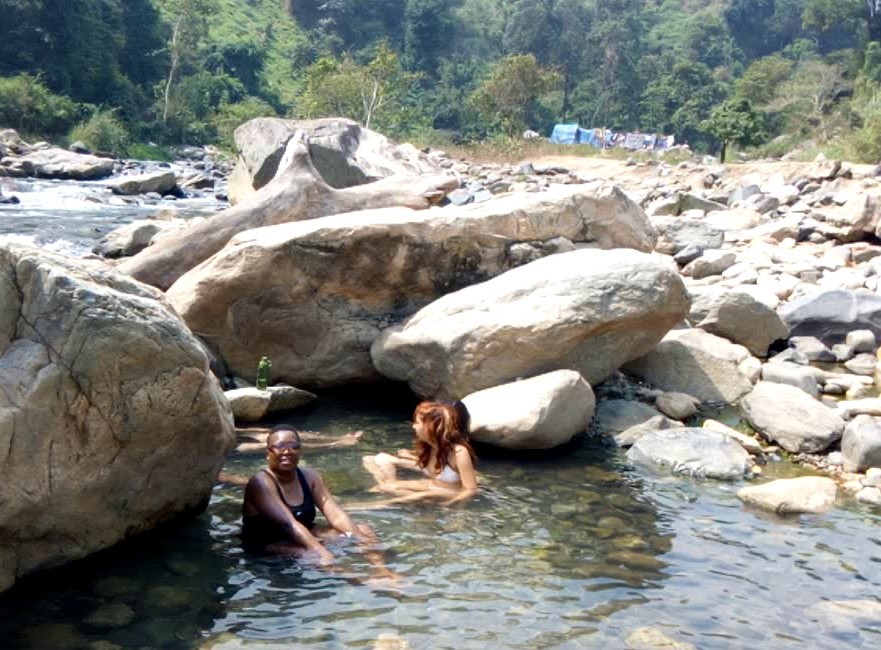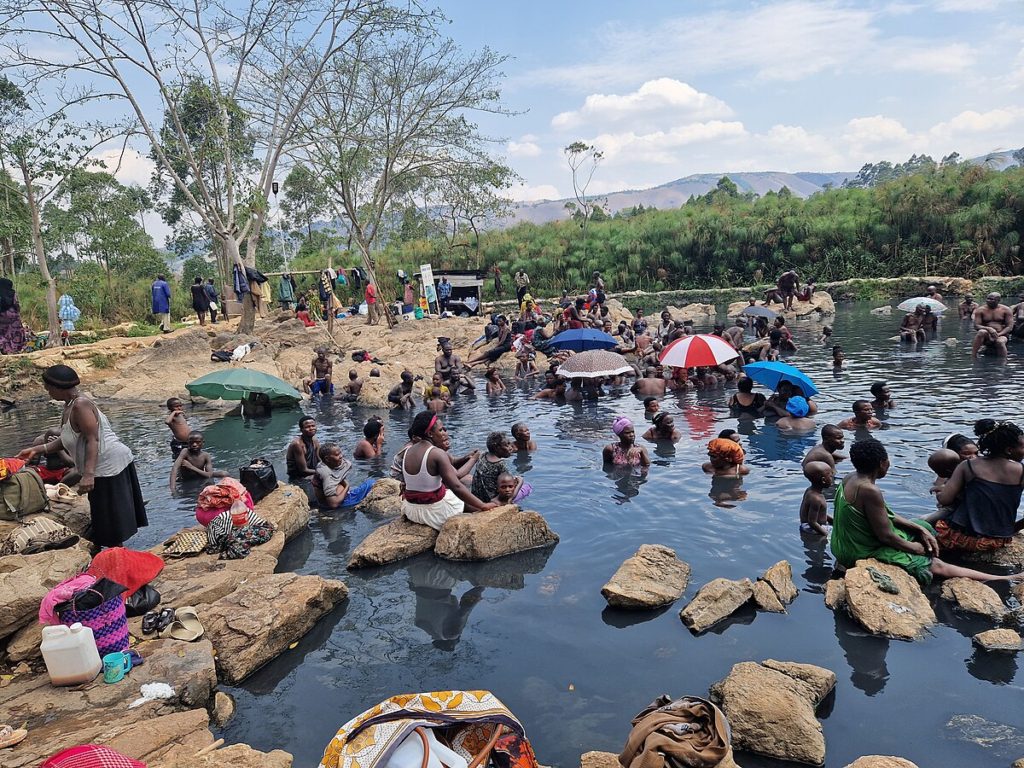Kitagata Hot Springs
The hotspring known as Kitagata Hot Springs, named after the town of Ishaka, is thought to have miraculous healing properties. It is located in the western region of Uganda. Volcanic activity produces hot springs, which are formed when heated water rises to the surface of the earth from beneath its crust.

The Sempaya hotsprings
On the route to the hot springs, there is a lot of flora to take in, including striking peaks and valleys.
When one arrives, they question if it’s a market of some kind because of the large number of people gathering there. They’ll be lounging on rocks, partially nude, taking in God’s natural bounty. Every day, hundreds of people swarm this location!
Kitagata is divided into two sections: one designated for usage by women and children, and the other for men only. While the other half has simply warm water, one has boiling water, hot enough to cook an egg or make oatmeal.
There has been much discussion over the Kitagata Hot Springs, but most people agree that it can treat a wide range of illnesses. Mulago Hospital is honored in the name of the healing spring. However, considering the volcanic system that surrounds this area, its healing capacity can be supported by science. In settings of this kind, heat rises from rocks far below the surface and transfers to water above the ground, where it forms hot springs.
Therefore, it’s likely that the water’s therapeutic qualities stem from the minerals in the rocks, the heat (applying pressure to swollen joints, for example), or the relaxation.
Many come to the hot springs with the purpose of using its healing properties, while others are merely in awe of God’s creations via nature! Those who live nearby and do not want to take a bath there visit the location and collect water in Jerrycans.

Given their ideal position for a Ugandan trip, Kitagata Hot Springs have a lot of potential to draw tourists.
It is still free to enter and open to everyone, even with its enormous potential and the great number of visitors it receives each day. The people fiercely objected to attempts to impose a fee, claiming that access to “God’s free gift” could not be restricted.



